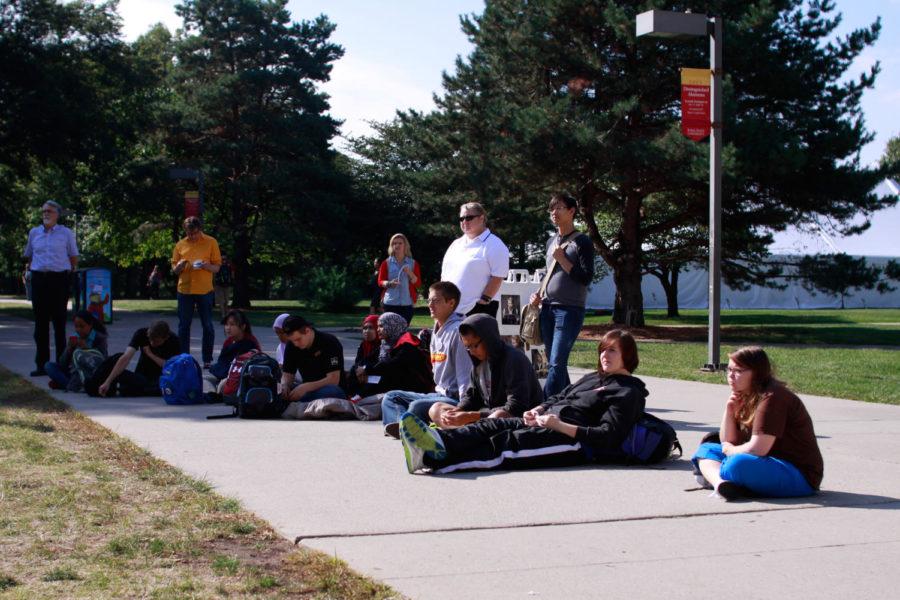Excerpts read from challenged books as part of Banned Books Week
September 25, 2013
“Harry Potter,” “Catcher in the Rye,” “To Kill a Mockingbird” and “Adventures of Huckleberry Finn” were just a few of the books read aloud outside of Parks Library as part of Banned Book Week.
“I think it’s important to highlight this, because really only a small number of books that are challenged come to public notice,” said Tobie Matava, librarian of human science and humanities at Parks Library. “There’s a lot more books that are removed from library shelves with little being said.”
This is the 31st year that Banned Books Week is being celebrated by libraries and schools across the country, Matava said.
“It’s important that everybody have the right to chose what they want to read,” Matava said. “Other people don’t chose for you what you’re able to read.”
A select number of university leaders, staff and free-speech advocates from Ames read aloud to the public, just outside of Parks Library Wednesday afternoon.
The members chosen were to select a banned book that has been challenged in Iowa libraries due to it containing or mentioning topics such as sex, homosexuality, swear words, suicide or drug use. Each reader had limited time to read an excerpt from the book they had chosen.
“I think the public should be exposed to these books,” said Pamela Anthony, dean of students.
Anthony read from the book “Go Tell It on the Mountain” by James Baldwin, published in 1953.
This book talks about a negro family and their experiences with church, Anthony said.
“I grew up in church, and my parents raised me in church,” Anthony said. “So there’s some fundamental things in the book I appreciated.”
The excerpt she read was based on a regular sunday morning service. The main character is proud for being a christian but at the same time he is nervous about being a christian, Anthony said.
The book was banned due to its violence and sexuality in the church. Anthony said people in church do not want to talk about the context of the story, because there’s people who have a perspective of what church is and is not.
Banned books do not affect the library business, because people across the country are still reading books, Matava said. Banned books have more of an effect in K-12 libraries, due to their school districts decisions on curriculum.
As a university, Iowa State does not have any complaints on book content, and everything the library contains is available to all students on campus, Matava said.
“You decide what is too much for you,” Matava said. “You limit your reading or television watching based on what is acceptable to you.”







